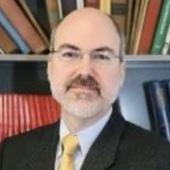
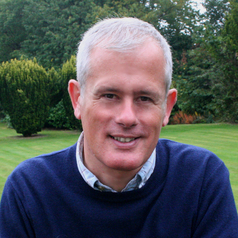
Mark Exworthy
Professor of Health Policy and Management, University of Birmingham
Mark is a Professor of Health Policy and Management at the Health Services Management Centre, University of Birmingham.
Mark has previously held posts at Southampton University, London School of Economics (LSE), University College London (UCL), Oxford Brookes and Royal Holloway University of London. He was also a Harkness Fellow in health care policy, based at University of California-San Francisco (UCSF) (funded by the Commonwealth Fund of New York). He chairs the Society for Studies in Organising Healthcare (SHOC): @SHOC_OBHC
Less ![]()
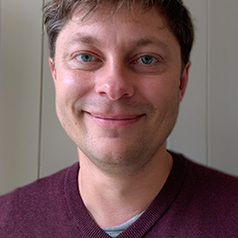
Mark Faulkner
Assistant Professor in Medieval Literature and Director, Trinity Centre for the Book, Trinity College Dublin
I joined the School of English at Trinity in September 2016 after four years as Lecturer in Medieval English at the University of Sheffield, having previously taught at University College Cork and in Oxford, where I completed my D. Phil under the supervision of the late palaeographer M. B. Parkes. Partly in tribute to Malcolm, I am currently co-editing the three-volume History of Punctuation in English Literature for Cambridge University Press with Jeff Guttierez (Boston), John Lennard (Cambridge) and Elizabeth Bonapfel (Berlin).
My research focuses on material and cultural aspects of medieval textual production, dissemination and reception. The majority of my work hitherto has concerned the twelfth century and the afterlife of Old English and the emergence of early Middle English, but I have published across the whole range of medieval literature, from Beowulf to sixteenth-century performances of medieval drama.
Much of my work has involved (re-)editing and (re-)considering neglected twelfth-century English language texts. I have published numerous articles on these texts, and my book-length study of the period, A New Literary History of the Long Twelfth Century: Language and Literature between Old and Middle English came out with Cambridge University Press in 2022. This was a period of dramatic political, cultural and linguistic change, in which the Latin and English literate cultures of late Anglo-Saxon England were shifted into a new configuration with Latin and French as the prestige languages. My work has focused on three main elements:
Placing the production, reception and use of surviving twelfth-century texts in detailed regional, cultural and political contexts.
Augmenting the number of English texts known to have been written in the twelfth century.
Comprehending in greater detail the linguistic history of twelfth-century English, to facilitate the redating of texts and to understand the sociolinguistic constraints which affected those using English.
To draw further attention to writing in English from the period, I am currently producing a Critical Anthology of Twelfth-Century English: Writing the Vernacular in the Transitional Period for Arc Humanities Press, to be published in early 2025.
Much of my research is concerned with telling the story of particular manuscripts: when and where they were written, and who read them and why. To do this as thoroughly as possible, I use a wide range of methodologies from literary studies, linguistics, history, palaeography and codicology. Recently, I have been exploring using large corpora and data analytics to assist in this work. With the help of funding from the Irish Research Council, I hosted a colloquium on Big Data and Medieval Studies: the Present and Future of Medieval Text Archives in June 2017, and from 2019-2024 I will hold a Provost’s Project Award for Medieval Big Dating, which will explore quantitative and perhaps computational methods to develop ‘big data’ techniques to assist in the dating of texts from the Old and early Middle English periods. I am the developer of the TOXIIC (Trinity Old English from the XIIth Century) corpus, version 1 of which was released in 2018. Version 2, a collaboration with Elisabetta Magnanti (Vienna), which uses machine learning to transcribe the manuscripts, is in progress and should be released in late 2022 or early 2023. From 2022 to 2024, I am PI on the IRC-Coalesce-funded project, Searobend: Linked Metadata for English-Language Text, 1000-1300, a collaboration with Prof. Declan O’Sullivan, from the School of Computer Science and Statistics at TCD.
In Trinity, you’ll find me giving lectures on the various fresher medieval options and teaching sophister options on manuscripts, language contact, distant reading and translation.
Part of my role is working with the Library to showcase Trinity’s world-class collection of medieval manuscripts. In 2017/8, in partnership with the Long Room Hub and the Library I organised a series of public lectures on Trinity’s manuscripts entitled Beyond the Book of Kells. This has led to the discovery of some unnoticed treasures. I have also organised conferences on individual Trinity manuscripts, such as the Dublin Apocalypse (MS. 64), and been active in the Library’s Carnegie-Funded Manuscripts for Medieval Studies Project, which has so far seen the digitisation of twenty manuscripts, including the famous Book of St Albans (MS. 177). I led the development of the new Trinity Centre for the Book in 2022, and am now its inaugural Director.
You can view a full list of my publications as part of my TCD research profile.
At postgraduate level, I was inaugural Director of the M. Phil in Medieval Studies from 2019-2022. I welcome enquiries from students interested in late Old English, early Middle English, manuscript studies, historical linguistics and corpus or computational approaches to the literature of any period.
Less ![]()
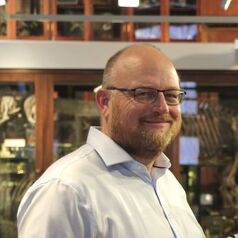
Mark Fielder
Professor of Medical Microbiology, Kingston University
Prof Fielder was awarded a PhD in Microbiology and Immunology from Kings College London in 1995 winning the Tadion-Rideal Prize for outstanding postgraduate work. He then undertook postdoctoral position at St Georges Hospital London on mucosal vaccination against Vibrio cholerae. Fielder joined Kingston University as a lecturer (1998) in medical Microbiology and awarded a chair in Medical Microbiology in 2011. Fielder is a former advisor for the Clinical Laboratory Sciences Institute (Veterinary antimicrobial susceptibility testing) a member of the Standards in Microbiology for England steering committee. Fielder’s research team are multidisciplinary working on rapid detection systems for infectious disease diagnosis and to overcome antimicrobial resistance in clinical and veterinary settings as well as working with collaborators in the USA on aspects of emerging infectuious disease.
Less ![]()
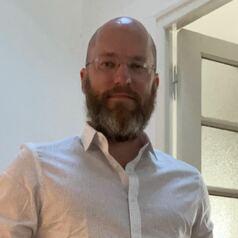
Mark Finlayson
Associate Professor of Computer Science, Florida International University
I am the Eminent Scholar Chaired Associate Professor of Computer Science in FIU's Knight Foundation School of Computing and Information Sciences.
Research Interests
I study the science of narrative, including understanding the relationship between narrative, cognition, and culture, developing new methods and techniques for investigating questions related to language and narrative, and endowing machines with the ability to understand and use narratives for a variety of applications. Key problems I have addressed so far include: extracting high-level narrative structure from sets of stories; techniques for discourse processing; temporal information extraction; general natural language processing; the creation, annotation, and manipulation of language resources; and collecting richly annotated corpora of stories. My research intersects computational linguistics, artificial intelligence, cognitive science, computational social science, and the digital humanities.
Brief Bio
I received my Ph.D. in Computer Science from MIT in 2012 under the supervision of Professor Patrick H. Winston. Following that, I was a Research Scientist in the MIT Computer Science and Artificial Intelligence Laboratory for 2½ years. I received my S.M. in 2001 from MIT, and the B.S. in 1998 from the University of Michigan, both in Electrical Engineering. I received promotion and tenure in Summer of 2020. While at FIU my work has been funded by NSF, NIH, ONR, DARPA, DHS, and IBM.
Less ![]()
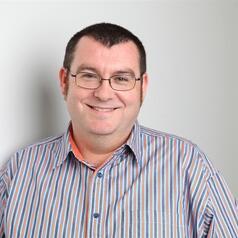
Mark Forshaw
Professor of Health Psychology, Edge Hill University
I am a nationally and internationally recognised expert in training in psychology, through my work with the British Psychological Society and the European Federation of Psychologists Associations. I have consulted for a range of organisations across the world, both public and private sector, on training, continuing professional development, critical thinking, and leadership.
I founded Crisis and Resilience Expertise (CaRE), a collaborative home for researchers internationally who are working on projects relating to pandemics and any aspect of human crisis such as terrorism, natural disaster and economic crashes.
I have previously been President of the Institute of Health Promotion and Education, a BPS Trustee, a member of the Registration Authority of The Science Council, a board member of the Occupational Safety and Health Consultants Register, and have been Chair of various boards and committees including the BPS DHP Training Committee, the Membership and Standards Board, the Board of Examiners in Health Psychology and the Qualifications Standards Committee. I served on the EFPA European Awarding Committee for the EuroPsy certification.
I am the author of 12 books for students, health professionals and the public, most recently Health Psychology in Clinical Practice.
https://www.routledge.com/Health-Psychology-in-Clinical-Practice/Forshaw/p/book/9780367637316
Less ![]()
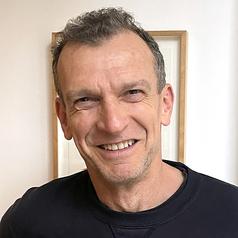
Mark Friedlander
PhD Candidate, Victorian College of the Arts, The University of Melbourne
Mark Friedlander is an exhibiting artist and university educator.
His PhD research is on the effect of risk management on artworks and art practice.
Principally based in the Teaching Workshop at the Victorian College of the Arts, Mark works with students on the exploration of art material processes.
Less ![]()
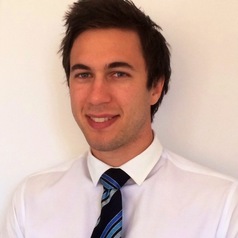
Mark Giancaspro
Mark Giancaspro is a Lecturer at the University of Adelaide Law School. He holds an honours degree in Laws and Legal Practice from Flinders University and a PhD from the University of Adelaide. His legal employment background and research interests are both primarily commercial, with issues in contract law and its various applications being his principal theme. Mark teaches in contract law, business law, tort law and sports law and has published widely on matters including issues with the formation and renegotiation of contracts, and the doctrine of consideration. He is on the editorial committee for the Alternative Law Journal and has volunteered at community legal centres.
Less ![]()
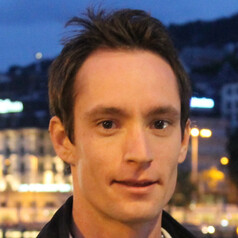
Mark Goldsworthy
Senior Research Scientist, CSIRO
Dr Mark Goldsworthy is a senior research scientist at CSIRO, whose research interests include:
big data analysis and science
mathematical & statistical modelling
energy systems analysis
computational and simulation sciences
building thermal physics
net zero emissions
air conditioning
computational fluid dynamics & heat transfer
mechanical engineering
software development.
Less ![]()
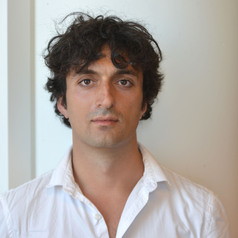
Mark Graham
Mark Graham is an Associate Professor and Senior Research Fellow at the OII, a Research Fellow at Green Templeton College, and an Associate in the University of Oxford’s School of Geography and the Environment.
He has published articles in major geography, communications, and urban studies journals, and his work has been covered by the Economist, the BBC, the Washington Post, CNN, the Guardian, and many other newspapers and magazines. He is an editorial board member of Information, Communication, and Society, Geo:Geography, and the Environment, and Big Data and Society. He is also a member of DFID’s Digital Advisory Panel and the ESRC’s Peer Review College.
In 2014, he was awarded a European Research Council Starting Grant to lead a team to study 'knowledge economies' in Sub-Saharan Africa over five years. This will entail looking at both low-end (virtual labour and microwork) and high-end (innovation hubs and bespoke information services) in fifteen African cities.
Research interests
Internet Geography, ICT for development, globalization, economic geography, transportation and communications, social theory, transparency, user-generated content, Southeast Asia, East Africa, zombies
You can follow him on Twitter at @geoplace
Less ![]()
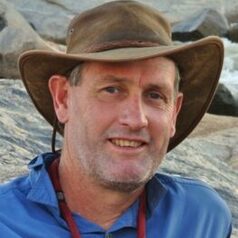
Mark Graham1
Aquatic Ecologist, Centre for Water Resources Research, School of Agricultural, Earth and Environmental Sciences, University of KwaZulu-Natal
Dr Mark Graham is an aquatic ecologist with 30-plus years’ experience in terrestrial and aquatic ecosystem functioning and management. Mark's early career started at Umgeni Water, where he had extensive involvement in the management and development of an ISO 17025 quality accredited laboratory and the National River Health Programme – Quality Assurance programme. Mark then made a move to professional consulting in starting GroundTruth, Water, Wetlands, Biodiversity and Environmental Engineering. Over the years Mark has provided specialist input on numerous projects for national and international corporations and government departments, developing innovative solutions to a range of practical and applied environmental and water-related issues. Furthermore, Mark is actively involved in the leading of water resources research on numerous research projects for the Water Research Commission and the Department of Water and Sanitation, having co-developed numerous of the published assessment tools and EcoStatus models currently used in South Africa (e.g. SASS5, IHI, VEGRAI, MIRAI). He is a registered professional natural scientist (Pr Sci Nat), a Fellow of the Water Institute of SA and the regional SASS5 quality assurance auditor appointed by the Department of Water and Sanitation. Mark plays an active role in promoting and developing citizen science within the water sector of South Africa, with the aim of empowering and educating the public to collectively improve the state of our water resources.
Qualifications
2004 PhD (Botany, University of North West)
1991 MSc (Biological Sciences, University of Natal, Durban)
1987 BSc (Agriculture, University Natal, Pietermaritzburg) – majoring in rangeland ecology
Less ![]()
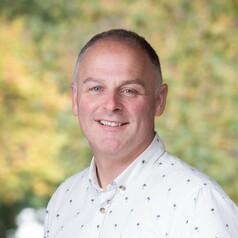
Mark Green2
Associate Professor and Deputy Scientific Director Research at Monash IVF, The University of Melbourne
Associate Professor Mark Green is a reproductive biologist and group leader at the University of Melbourne, the Deputy Scientific Director Research at Monash IVF and a Fellow of the Society for Reproductive Biology. Mark obtained his PhD studying factors that affect early embryo development at the University of Nottingham UK, before undertaking a Life Sciences Postdoctoral Fellowship at the University of Missouri USA. In 2004 he became the inaugural Maurice Paykel Fellow and relocated to The Liggins Institute, University of Auckland NZ. He subsequently held a joint appointment as the first Fertility Associates Research Fellow at The Liggins Institute, University of Auckland and as a Senior Scientist at AgResearch Ltd NZ. In 2011, he took up his current position, as the Merck Serono Lecturer, then Senior Lecturer, and now Associate Professor in the School of BioSciences at the University of Melbourne. His research centres on improving outcomes of human and animal ART by identifying how endocrine and environmental factors impact gametes and early embryo development, as well as subsequent offspring health. He undertakes this research in a variety of species, including humans, ruminants, rodents and invertebrates.
Less ![]()

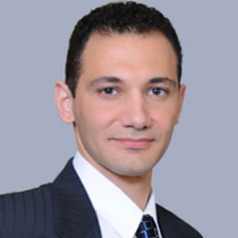
Mark Halaki
Professor of Human Movement, University of Sydney
Mark has a background in mechanical and biomedical engineering with research interests in electromyographic and biomechanical studies in the area of motor control. The primary focus of Mark’s research is the study of the control of movements in healthy people and people with pathology. With injury and pathology, movement control is disturbed, resulting in pain or inability to move. By understanding differences in movement and muscle coordination between healthy people and people with pathology, our ability to treat patients with pathology is enhanced. His main research area is studying these differences with the ultimate goal of identifying methods, validated using large randomised control studies, of preventing and treating injuries effectively.
Less ![]()
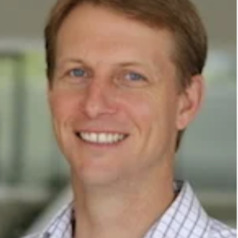
Mark Hancock
Professor of Physiotherapy, Macquarie University
Mark Hancock is a Professor of Physiotherapy, Faculty of Medicine and Health Science, Macquarie University. He has over 20 years of clinical experience as a musculoskeletal physiotherapist working in a primary care setting. Mark now works primarily as an academic/researcher. His research focuses on the diagnosis and management of back pain.
Mark completed his PhD at the University of Sydney in 2007. He has published over 200 peer reviewed papers and received over $11 million in funding to support his research. He has published in leading medical journals (e.g. NEJM, Lancet and BMJ and discipline specific journals (e.g. Spine and Journal of Physiotherapy). His work has been accompanied by editorials and received wide media attention. Professor Hancock is a member of the associate editorial board for the Cochrane Back Review Group and Journal of Physiotherapy board member.
Less ![]()
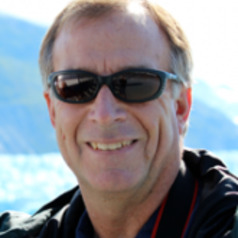
Mark Hay
Professor of Environmental Biology, Georgia Institute of Technology
Mark Hay is an experimental marine ecologist known for his work on community, marine, and chemical ecology. He holds the Teasley Chair in Environmental Biology and is a Regents Professor. His research has heightened our understanding of marine ecosystems, helped found the field of marine chemical ecology, provided key insights regarding the conservation and restoration of coral reefs, and challenged how scientists view ecological and evolutionary processes affecting the establishment and impact of invasive species. Hay commonly works with media outlets (NY Times, National Geographic, NPR, BBC, Animal Planet, etc.) to assure that basic findings from his group are made accessible to the general public.
He has participated in dozens of ship-based expeditions but more commonly works at remote field stations to conduct longer-term experiments. He has conducted 5,000+ scuba dives and four saturation diving missions (using both Hydrolab and Aquarius) – where scientists live and work at depth on a coral reef for periods of 10 days. He is identified by ISI’s Web-of-Sciences as one of the world’s most cited researchers in the area of Ecology and the Environment.
Less ![]()

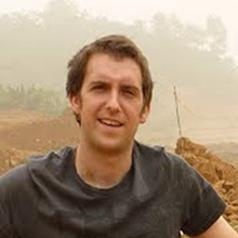
Mark Hirons
Environmental Social Science Research Fellow, University of Oxford
Mark is a research fellow in environmental social science who is interested in addressing inter-linked social and environmental challenges through interdisciplinary research. He is broadly engaged with research that investigates issues of well-being, inequality and justice with respect to climate change and natural resource governance. He is interested how different values and knowledges interact with institutional and cultural contexts in driving the governance decisions which underpin environmental and social change across a range of scales.
Previously Mark worked as a post-doctoral researcher working on the Ecosystem Services and Poverty Alleviation (ESPA) Ecolimits project. This interdisciplinary project investigated the linkages between ecosystem service provision and the multiple dimensions of poverty in coffee- and cocoa-dominated agricultural settings, focusing on Ethiopia and Ghana respectively. The project used a range of methods to develop a holistic understanding of how ecosystems influence, and are influenced by, socio-economic, political and cultural conditions across various scales. Mark completed his PhD at the University of Reading which examined land-use conflicts between mining and forests in Ghana.
Less ![]()
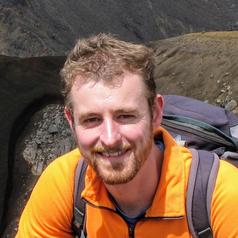
Mark Hoggard
DECRA Research Fellow, Australian National University
I am a DECRA Research Fellow working in the Research School of Earth Sciences, Australian National University. I previously studied at the University of Cambridge, Harvard and Columbia Universities before moving to Australia in 2021.
My research is primarily focused on geoscience problems that are relevant to society. I am actively undertaking projects in sea-level modelling, critical mineral deposits, and identification of underground nuclear tests. More broadly, I am an observational geodynamicists specialising in the integration of geological and geophysical datasets with numerical models to better understand processes that have shaped the Earth.
Less ![]()
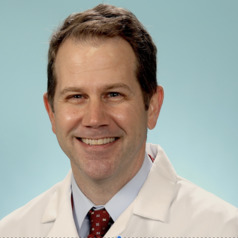
Mark Huffman
Professor of Medicine, Washington University in St Louis
I am a Professor of Medicine and Co-Director of the Global Health Center at Washington University in St. Louis. I also have a secondary appointment at The George Institute for Global Health, University of New South Wales in Australia. I am a practicing preventive cardiologist, researcher, and educator and have more than a decade of experience in global cardiovascular epidemiology, clinical trials, implementation research, and health policy research and training. My research seeks to improve global cardiovascular health and health care in low- and middle-income countries and to bring lessons learned back to the United States.
Less ![]()
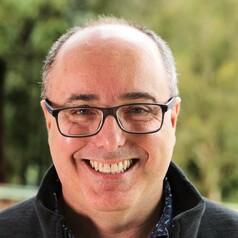
Mark Hughes
Professor of Social Work, Southern Cross University
Mark Hughes is a social worker and has worked in health, aged care and mental health settings in both Australia and the UK. His research interests centre around ageing and the delivery of health and aged care services to older people. He is currently engaged in a program of research on ageing in lesbian, gay, bisexual, transgender and queer (LGBTQ+) communities, which has involved projects on sexual identity expression in health and aged care, lesbian and gay people's experiences and expectations in accessing services, and the care networks of older LGBTQ+ people. In addition to work on ageing, Mark has also published more broadly on social work and social work education. Mark is currently Professor of Social Work and Editor of the Australasian Journal on Ageing.
Less ![]()
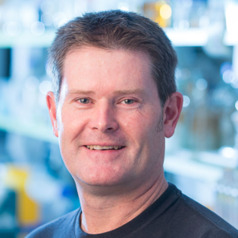
Mark Hulett
Professor and Head of Department, La Trobe University
Prof Hulett is the current Head of Department of Biochemistry and Chemistry at La Trobe University and has over 30 years of experience as a researcher in molecular immunology.
Prof Hulett completed his doctoral studies in 1994 at The University of Melbourne on immune cell receptors in inflammation and allergy. He was awarded an NHMRC Peter Doherty Postdoctoral Fellowship (1995-1998) to continue his work on immune receptors at the Austin Research Institute. Prof Hulett moved to the John Curtin School of Medical Research (JCSMR) at The Australian National University in 1999 where he cloned the enzyme heparanase and described its important role in inflammatory disease and cancer. Following the awarding of a Viertel Senior Medical Research Fellowship in 2002, Prof Hulett established an independent laboratory at the JCSMR to study molecular aspects of immune and tumour cell migration. In 2008 Prof Hulett moved his research group to the Department of Biochemistry at La Trobe University. His current research interests include inflammation and the tumour microenvironment, as well as the mechanism of action and therapeutic application of host defense peptides. Prof Hulett’s research has a strong translational focus and he has collaborated with a number of biotechnology companies including Progen Industries Ltd and Hexima Ltd. He has published over 130 peer-reviewed papers that have attracted 9500+ citations, as well as 8 patents, and his research has been recognized with a number of prestigious awards including the Howard Florey Medal and a Tall Poppy Science Award. Prof Hulett is a passionate advocate for science and medical research having been a past-president of the Australian Society of Medical Research (2008) and national board director (2009-2019). He has previously held the positions of Research Director (2015-2016) and Deputy Director (2017-2019) of the La Trobe Institute for Molecular Science at La Trobe University. Prof Hulett is the current Head of Department of Biochemistry and Chemistry at La Trobe University (2020-present).
Less ![]()
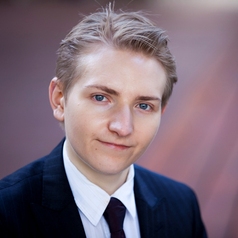
Mark Humphery-Jenner
Associate Professor of Finance, UNSW Australia
Mark is an Associate Professor of Finance at UNSW Business School. His research interests are mainly in corporate governance and in law & finance. His work has appeared in major finance journals such as Journal of Financial Economics, Review of Financial Studies, and Journal of Financial and Quantitative Analysis. He received his PhD in finance from UNSW in 2012 and has also received qualifications in law.
Less ![]()
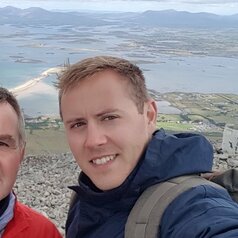
Mark Jordan
Lecturer in Housing Law, University of Southampton
Dr Mark Jordan lectures in land law, housing law and housing rights at Southampton Law School, University of Southampton. His main field of interest is exploring how housing rights are employed by social movements in campaigns around housing. He is currently working on a number of national and international housing law and policy collaborative research projects which focus on the growing role of tenants unions in Scotland and Spain, regulation of local authority housing in Ireland, student housing in England, the law and homelessness in Ireland and EU regulation of mortgage lending.
Less ![]()
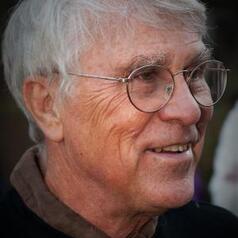
Mark Juergensmeyer
Professor of Sociology and Global Studies, University of California, Santa Barbara
Mark Juergensmeyer is Distinguished Professor of Sociology and Global Studies and the founding director of the Orfalea Center for Global and International Studies at the University of California, Santa Barbara. He is an expert on religious violence, conflict resolution and South Asian religion and politics, and has published more than three hundred articles and thirty books. His widely-read Terror in the Mind of God: The Global Rise of Religious Violence (University of California Press, 4th edition 2017), is based on interviews with religious activists around the world--including Buddhist extremists in Myanmar, leaders of Hamas, imprisoned activists associated with al Qaeda and the Islamic State, and Christian militants in the United States--and was listed by the Washington Post and the Los Angeles Times as one of the best nonfiction books of the year. A previous book, Global Rebellion: Religious Challenges to the Secular State (University of California Press, 2008) covers the rise of new nationalisms in response to the global decline of the secular state. It was named by the New York Times as one of the notable books of the year. His book on Gandhian conflict resolution has been reprinted as Gandhi's Way (University of California Press, Revised Edition, 2005), and was selected as Community Book of the Year at the University of California, Davis. He has co-edited The Encyclopedia of Global Religions (Sage Publications 2007), The Oxford Handbook of Global Religions (Oxford University Press 2007), and co-edited with Saskia Sassen and Manfred Steger the Oxford Handbook of Global Studies (Oxford University Press 2019). He co-edited with Craig Calhoun and Jonathan vanAntwerpen Rethinking Secularism (Oxford University Press 2011). His latest book is God and War: A Meditation on Religion and Warfare (Oxford University Press 2020). He has received research fellowships from the Wilson Center in Washington D.C., the Harry Frank Guggenheim Foundation, the U.S. Institute of Peace, and the American Council of Learned Societies. He is the 2003 recipient of the Grawemeyer Award for contributions to the study of religion, and is the 2004 recipient of the Silver Award of the Queen Sofia Center for the Study of Violence in Spain. He received an Honorary Doctorate from Lehigh University in 2004 and a Distinguished Teaching Award from the University of California, Santa Barbara in 2006. Since the events of September 11 he has been a commentator in the news media, including CNN, NBC, CBS, BBC, and NPR.
Less ![]()
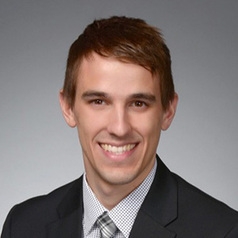
Mark Korpics
Assistant Professor of Radiation and Cellular Oncology, University of Chicago
Mark Korpics is a radiation oncologist whose research interests include using radiomics, imaging analysis, combination stereotactic body radiotherapy and immunotherapy, and population-based studies to improve cancer treatments.
His work has been published in the International Journal of Radiation Oncology, Biology, Physics, Cancer, Head and Neck, Journal of Applied Clinical Medical Physics, and Nature Communications.
Korpics completed his undergraduate studies at New York University with a BS in physics and a minor in chemistry and philosophy. He subsequently attended medical school at Loyola University Chicago Stritch School of Medicine, and completed his internship at Resurrection Medical Center and a radiation oncology residency at the University of Chicago. During his residency, he received an MS in public health sciences from the University of Chicago.
Less ![]()
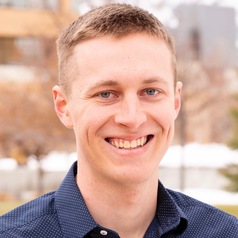
Mark Kreider
Ph.D. Candidate in Forest and Conservation Science, University of Montana
I'm an ecologist, NSF Graduate Research Fellow and Ph.D. candidate in the W.A. Franke College of Forestry & Conservation at the University of Montana. My research focuses on understanding the natural role of wildfire, how ecosystems and societies respond to disturbance, and how to make public lands accessible to all. I'm passionate about linking art and science to communicate my work in accessible and engaging ways. Learn more at https://www.markkreider.com/
Less ![]()
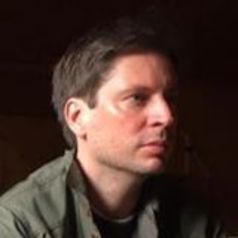
Mark Lacy
Senior lecturer, Politics, Philosophy, and Religion, Lancaster University
I am currently writing a book on the future of war. In 2014 my book Security, Technology and Global Politics: Thinking with Virilio was published: the book examines the work of Paul Virilio, a French urbanist and philosopher who has written since the 1970s on war, security, cities and politics: http://www.routledge.com/books/details/9780415576048/
I am editor of the Routledge series on Conflict, Security and Technology.
Less ![]()
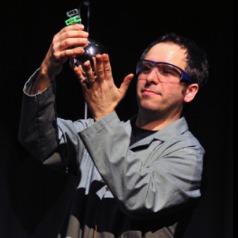
Mark Lorch
Dr Mark Lorch is a senior lecturer in biological chemistry at the University of Hull. He trained as a protein chemist, studying protein folding and function. His research now focuses on the chemistry of a broad range of biological systems including lipids, proteins and even plant spores.
Mark is also a dedicated science communicator, he blogs at www.chemistry-blog.com and occasionally for the Guardian. He gives regular talks to schools, the public and conferences (sometimes all at once, at science festivals or TEDx) and he occasionally pops up on the radio and TV explaining science and technology to a public audience.
Less ![]()
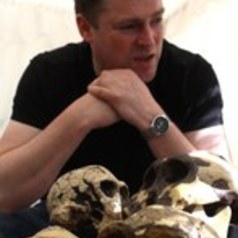
Mark Maslin
Professor of Climatology, UCL
Mark Maslin FRGS is a Professor of Physical Geography at University College London. He is a Royal Society Industrial Fellowship and Founding Director of Rezatec Ltd. He is science advisor to the Global Cool Foundation, Climatecom Strategies, Sopra-Steria, and Carbon Sense Ltd. He is member of Cheltenham Science Festival Advisory Committee. Maslin is a leading scientist with particular expertise in past global and regional climatic change and has publish over 150 papers in journals such as Science, Nature, Nature Climate Change, The Lancet and Geology. He has been awarded research council, charity and Government grants of over £40 million. His areas of scientific expertise include causes of past and future global climate change and its effects on the global carbon cycle, biodiversity, rainforests and human evolution. He also works on monitoring land carbon sinks using remote sensing and ecological models and international and national climate change policies.
Professor Maslin has presented over 45 public talks over the last three years including UK Space conference, Oxford, Cambridge, Leeds, RGS, Tate Modern, Frontline Club, Fink Club, Royal Society of Medicine, British Museum, Natural History Museum, The Baker Institute, Goldman Sachs and the Norwegian Government. He has supervised 10 Research fellows, 15 PhD students and 25 MSc students. He has also have written 8 popular books, over 30 popular articles (e.g., for New Scientist, The Times, Independent and Guardian), appeared on radio and television (including Timeteam, Newsnight, Dispatches, Horizon, The Today Programme, Material World, BBC News, Channel 5 News, and Sky News). His latest popular book is the high successful Oxford University Press “Climate Change: A Very Short Introduction” the third edition was published in 2014 and has sold over 45,000 copies. Maslin was also a co-author of the 2009 Lancet report ‘Managing the health effects of climate change’. He was included in Who’s Who for the first time in 2009 and was granted a Royal Society Wolfson Research Merit Award for the study of early human evolution in East Africa in 2011. He is currently the Director of the London NERC Doctoral Training Partnership.
Less ![]()
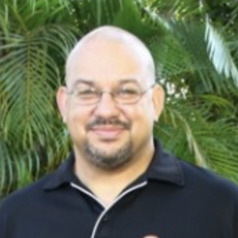
Mark Mayo
Associate Deputy Director, Indigenous Leadership and Engagement, and senior researcher, Menzies School of Health Research
Mark Mayo is a Darwin local and graduate of Charles Darwin University. Mark has worked on many research projects during his time at the Menzies School of Health Research from malaria and melioidosis to petrol sniffing and childhood ear diseases.
For over 14 years Mark has been researching melioidosis, a potentially fatal tropical disease found in the tropical areas of Northern Australia. Mark’s research into this disease covers many different aspects, from early detection of the disease in hospital and clinical settings, to understanding the environmental niche of the bacteria and the potential exposure risks to people and animals in an endemic region.
Less ![]()
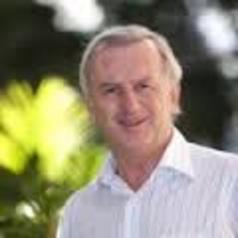
Mark McGovern
Senior Lecturer, QUT Business School, Economics and Finance, Queensland University of Technology
Dr Mark McGovern currently lectures in international economics and finance for international business at QUT. Funded industry research projects have included work for Queensland Main Roads on Financing Transport Infrastructure and for South West Natural Resource Management on Agricultural Viability.
Mark’s long term research interest is in industry development in open economies. This saw him invited to the 2020 Summit with follow up research on food security. He is an active member of the Rural Finance Roundtable Working Group.
As an applied economist with experience over many industries, he draws from theoretical areas of regional, industry and international economics; impact analysis; and economics more generally.
Mark has convened a number of summits and seminars to promote dialogues on matters of importance to the Queensland and Australian economies.
Less ![]()
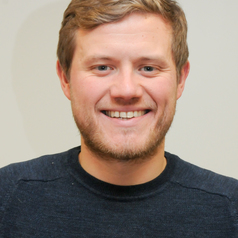
Mark McLay
Mark joined GCU having just completed his PhD at the University of Edinburgh in 2015. His thesis examined the Republican party's challenge to the War on Poverty between 1964 and 1968 and he is currently working to expand it into book which will take the project into 1973 when the Nixon Administration closed the Office of Economic Opportunity (and thus effectively ended the War on Poverty).
He has taught primarily American History for over five years at a variety of institutions. He currently teaches an Honours course on the 1920s and 1930s in the US.
Mark is primarily interested in the political history of the twentieth century in the United States and the United Kingdom. In particular, he enjoys researching the influence of prominent politicians on their respective country's history. Are they able to instigate successful social change? Are they able to shape public opinion, or are they forever shaped by it? He is also especially interested in the intersection between politics and socio-economic policy in the US during the twentieth century.
Mark co-hosts and produces the American History Too! podcast with Dr. Malcolm Craig. Episodes on issues ranging from the 1920s Scopes Monkey Trial to the HIV/AIDS Crisis in the 1980s can be found on iTunes or http://americanhistorytoo.podbean.com/.
Less ![]()
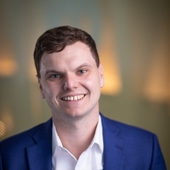
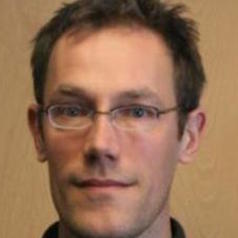
Mark Moritz
My research focuses on the transformation of African pastoral systems. I examine how pastoralists adapt to changing ecological, political and institutional conditions that affect their lives and livelihoods. I have been conducting research with pastoralists in the Far North Region of Cameroon since 1993. The long-term research has resulted in strong collaborations with local researchers, which has allowed me to develop innovative, interdisciplinary research projects with colleagues at the Ohio State University and the University of Maroua in Cameroon. Check out my website for more information about my research and teaching activities: http://mlab.osu.edu
Less ![]()
- Market Data















